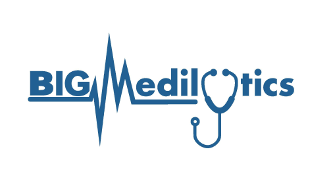EU-Funded Projects
Existing and Accepted EU projects
Selected past EU projects
| Project | Goal | Role | |
|---|---|---|---|
 (2018-2021) |
Optimization of the neoadjuvant breast cancer treatment by the use of diagnostic imaging (introduction of Radiomics tools). This is a part of a larger effort aimed at use of AI for streamlining various medical treatments and processes. | We lead Breast Cancer pilot and develop machine learning tools for prediction of the optimal neoadjuvant treatment based on combination of image (mammography, ultrasound and MRI), clinical and genomic data. | |
 (2017-2021) |
Training young scientists and fostering pan-European collaboration, with specific focus on metabolism and cancer immunology. | Supervising an early stage researcher (ESR) and seconding researcher(s) in applying machine learning tools to study the metabolism-immune system connections in cancer. | |
 (2019-2020) |
To make the transforming promise associated with Advanced Therapies a reality for the benefit of patients and society. | A “place” where medicine, basic research, technology development and engineering meet, communicate and work together. Through this coordinated, financially strong, academia-industry partnership, we hope to exert a game-changing impact on Europe´s economy and society. | |
 (2006-2008, and on going) |
Development of an AI system that learns from patients data and finds the best therapy regiment for a given HIV patient and creation of a freely available clinical decision support system to assist physicians in selecting the optimal treatment. | Development of machine learning tools for prediction of the in-vivo efficacy of anti-retroviral therapy regimens, based on the use of viral genotype data integrated with treatment response data derived from the clinical practice. Leading the creation of an ensemble methods that combine various such AI tools. See selected publications at Bioinformatics, HIV Medicine, AISAT and PMLR. | |
| Hypergenes (2008-2011) | Personalized prediction of the hypertension development. | Development of the disease model that predicts the future clinical range of each risk parameter, exploring also the contribution of the genomic data. | |
 (2015-2016) |
To identify the gaps in the present EU-R&D research program. | Active participation and co-leading the development of the roadmap (see the we-care proposed roadmap at the Lancet https://www.ncbi.nlm.nih.gov/pubmed/26876711. | |
 (2014-2016) |
Training young scientists and fostering international collaboration. | Hosting foreign students and helping to train them in use of machine learning in the healthcare domain. |


